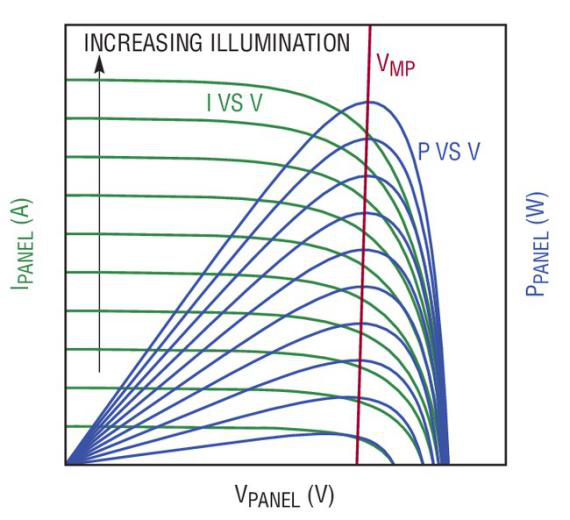The design of evacuated tube solar arrays have been around for decades and they generate up to 4 times more energy than photovolatic.
Solar panel output curve.
The i v curve for a typical 12 volt pv solar panel is shown at fig 2 above this maximum power point in the example curve given above is where vmp is 17 volts and the current imp is 2 5 amps.
Therefore the rated or the maximum power wmax in watts is 17 volts times 2 5 amps or 42 5 watts.
Most home solar panels on the market today have power output ratings ranging from 250 to 400 watts with higher power ratings generally considered preferable to lower power ratings.
A peak sun hour is the equivalent of the sun shining at an intensity for 1 000 kw per square meter for one hour expressed as 1 kwh m.
On average a domestic solar panel has a power output of around 265 watts although it can range anywhere from as little as 225 watts to more than 350 watts.
If you know the average daily peak sun hours for your location you can calculate the kwh your solar panels will make on a daily monthly and yearly basis.
Just as in the chart above peak sun hours are.
Solar panel output is expressed in units of watts w and represents the panel s theoretical power production under ideal sunlight and temperature conditions.
Putting it all together.
The coating on the panel further lowers the output equipment needed for creating an iv curve.
The output of a string of solar cells provides as much current as the worst performing cell piece each cell piece will have an output that falls along a distribution curve which pushes the total panel output lower 3.

